第39章 CHAPTER 3(14)
As for moral differences, considered as distinguished from intellectual,the distinction commonly drawn is to the advantage of women. They are declaredto be better than men; an empty compliment, which must provoke a bitter smilefrom every woman of spirit, since there is no other situation in life inwhich it is the established order, and considered quite natural and suitable,that the better should obey the worse. If this piece of idle talk is goodfor anything, it is only as an admission by men, of the corrupting influenceof power; for that is certainly the only truth which the fact, if it be afact, either proves or illustrates. And it is true that servitude, exceptwhen it actually brutalises, though corrupting to both, is less so to theslaves than to the slave-masters. It is wholesomer for the moral nature tobe restrained, even by arbitrary power, than to be allowed to exercise arbitrarypower without restraint. Women, it is said, seldomer fall under the penallaw -- contribute a much smaller number of offenders to the criminal calendar,than men. I doubt not that the same thing may be said, with the same truth,of negro slaves. Those who are under the control of others cannot often commitcrimes, unless at the command and for the purposes of their masters. I donot know a more signal instance of the blindness with which the world, includingthe herd of studious men, ignore and pass over all the influences of socialcircumstances, than their silly depreciation of the intellectual, and sillypanegyrics on the moral, nature of women.
The complimentary dictum about women's superior moral goodness may beallowed to pair off with the disparaging one respecting their greater liabilityto moral bias. Women, we are told, are not capable of resisting their personalpartialities: their judgment in grave affairs is warped by their sympathiesand antipathies. Assuming it to be so, it is still to be proved that womenare oftener misled by their personal feelings than men by their personalinterests. The chief difference would seem in that case to be, that men areled from the course of duty and the public interest by their regard for themselves,women (not being allowed to have private interests of their own) by theirregard for somebody else. It is also to be considered, that all the educationwhich women receive from society inculcates on them the feeling that theindividuals connected with them are the only ones to whom they owe any duty-- the only ones whose interest they are called upon to care for; while,as far as education is concerned, they are left strangers even to the elementaryideas which are presupposed in any intelligent regard for larger interestsor higher moral objects. The complaint against them resolves itself merelyinto this, that they fulfil only too faithfully the sole duty which theyare taught, and almost the only one which they are permitted to practise.
The concessions of the privileged to the unprivileged are so seldom broughtabout by any better motive than the power of the unprivileged to extort them,that any arguments against the prerogative of sex are likely to be littleattended to by the generality, as long as they are able to say to themselvesthat women do not complain of it. That fact certainly enables men to retainthe unjust privilege some time longer; but does not render it less unjust.
Exactly the same thing may be said of the women in the harem of an oriental: they do not complain of not being allowed the freedom of European women.